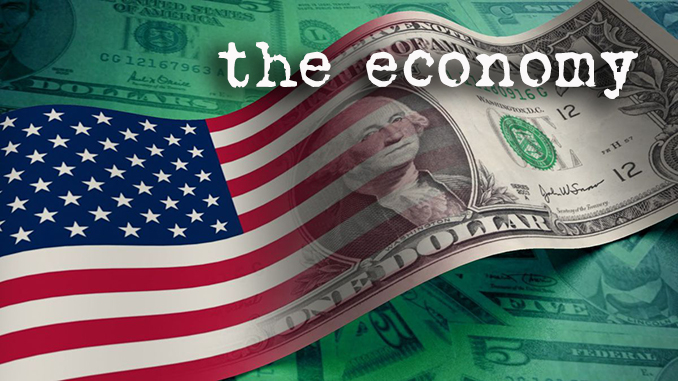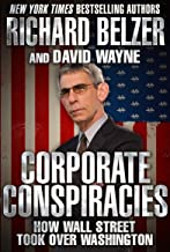
By John Friend
A network of individual, “common man” retail investors organizing on social media sites, including a popular public forum called “Wall Street Bets,” hosted on the discussion website “Reddit,” has caused chaos in the financial markets recently, inflicting billion-dollar losses on predatory hedge funds. Hedge funds often use their vast sums of capital to target struggling companies by “shorting” their stocks, which is essentially betting that the stock price will drop, not rise. “Wall Street Bets” and their supporters have thoroughly exposed the corrupt nature of the financial system, which illegally colludes and collaborates with large financial institutions and players to protect their ill-gotten gains.
The retail investors, largely comprised of individuals investing minimal sums of money in specific stocks, took a page from the hedge fund’s playbook this time by encouraging their allies to purchase and hold shares of stocks in targeted companies that major hedge funds “shorted,” particularly the struggling video game retailer GameStop, resulting in the company’s stock price skyrocketing in recent weeks. GameStop stock (GME) traded for just $17.25 at the beginning of the year and ballooned to a high of $347.51 on Jan. 27 as the number of shares traded also skyrocketed from around 20 million daily to nearly 200 million on Jan. 22. The stock price has since fallen to about $130 with volume under 40 million as AFP goes to press.
“Shorting” a stock is a popular strategy hedge funds and other large financial firms utilize to not only make huge sums of money but in some cases to target and destroy struggling companies. In a nutshell, a “short” is when a market player “borrows” shares in a company and sells them immediately in the anticipation that the price of the share will drop. The borrowed shares will eventually be sold at the lower price, and the market player will pay back their original lender and pocket the difference.
To further guarantee the price of shares of targeted companies drops—and the hedge funds can thus reap massive profits—“experts” from these hedge funds appear as financial analysts on mainstream news broadcasts and convince investors to sell their shares in targeted companies. This drives the price of the stock even lower to the benefit of the hedge fund vultures. This is an appalling practice that often destroys otherwise stable companies.
Short selling is a common practice on Wall Street, generating huge profits, but it can also result in devastating losses if a shorted company’s stock price actually rises rather than falls. In the case of Game Stop, large Wall Street hedge funds had tremendous short positions in the stock. When the individual retail investors organizing on the “Wall Street Bets” Reddit page noticed the situation and encouraged their allies to purchase shares of GameStop, they drove up the share price, dealing a major blow to the hedge funds.
According to recent reports, short-sellers took massive financial hits in January alone, with losses of nearly $71 billion. Just over $1 billion were lost by hedge funds that shorted GameStop, including Point72, Citron Research, and Melvin Capital, the latter of which required a multibillion-dollar bailout from fellow hedge funds as a result of its devastating losses in the GameStop short sell.
As news spread of the major losses Wall Street firms and hedge funds were taking, popular stockbroker services began restricting trades in GameStop and other stocks that had been shorted, a blatant and clear attempt to manipulate the market in favor of the hedge funds that were being crushed. Robinhood, a popular app-based platform that prides itself on democratizing finance and investing for everyone, outright banned users from purchasing shares of GameStop and other “volatile” stocks that were shorted by major hedge funds in January, while several other stockbroker services followed suit.
 Users were only allowed to sell their shares of GameStop, not purchase any. Robinhood eventually allowed users to begin purchasing GameStop stock again, but only in very limited numbers. The moves sparked immediate backlash from individual retail investors, who use platforms like Robinhood to purchase shares of GameStop and began posting negative reviews of the Robinhood app on the Google Play Store. This prompted Google to intervene and delete the negative reviews in order to protect Robinhood, yet another indication of the collusion between large financial interests.
Users were only allowed to sell their shares of GameStop, not purchase any. Robinhood eventually allowed users to begin purchasing GameStop stock again, but only in very limited numbers. The moves sparked immediate backlash from individual retail investors, who use platforms like Robinhood to purchase shares of GameStop and began posting negative reviews of the Robinhood app on the Google Play Store. This prompted Google to intervene and delete the negative reviews in order to protect Robinhood, yet another indication of the collusion between large financial interests.
In late January, a group of investors who utilized Robinhood filed a class action lawsuit against the company for its seeming market manipulation in favor of the hedge funds that shorted GameStop.
“Robinhood purposefully, willfully, and knowingly removing the stock GME [GameStop] from its trading platform in the midst of an unprecedented stock rise thereby deprived retail investors of the ability to invest in the open-market and manipulating the open-market,” the lawsuit argues in part. It goes on to allege Robinhood’s moves to block or severely restrict the ability of its users to purchase GameStop and other key stocks was done at the behest of “large institutional investors” into the company and designed to benefit their positions in the market.
Several congressional representatives, including “Squad” member Rep. Rashida Tlaib (D-Mich.), have condemned Robinhood and called for an investigation into the market manipulation and collusion on full display in the wake of the GameStop phenomenon.
“This is beyond absurd,” Rep. Tlaib recently tweeted, insisting that the House Committee on Financial Services open an investigation into “Robinhood’s market manipulation.”
“They’re blocking the ability to trade to protect Wall Street hedge funds, stealing millions of dollars from their users to protect people who’ve used the stock market as a casino for decades,” she powerfully stated.
Other progressive Democrats, such as Rep. Ro Khanna, expressed their outrage over the situation, noting that the incident “showed how the cards are stacked against the little guy in favor of Wall Street traders.”
While much remains uncertain about the future of GameStop, there are millions of individual retail investors that now realize their power and potential in the market, while Wall Street hedge funds, brokerage platforms, and major sections of the mass media have been exposed as openly collaborating to protect their ill-gotten gains and to prevent individuals from challenging their financial hegemony.

“Reddit Trading,” a popular anonymous user on the social media site “Twitter,” who is associated with the “Wall Street Bets” forum, argued in a recent tweet that what is happening is “beyond a movement. . . . This is a new normal.”
“The market is not going anywhere,” Reddit Trading stated. “We have shown that if we want a stock we will buy it and maximize the return. Exact same things hedge funds do to make billions.”
John Friend is a freelance writer based in California.



